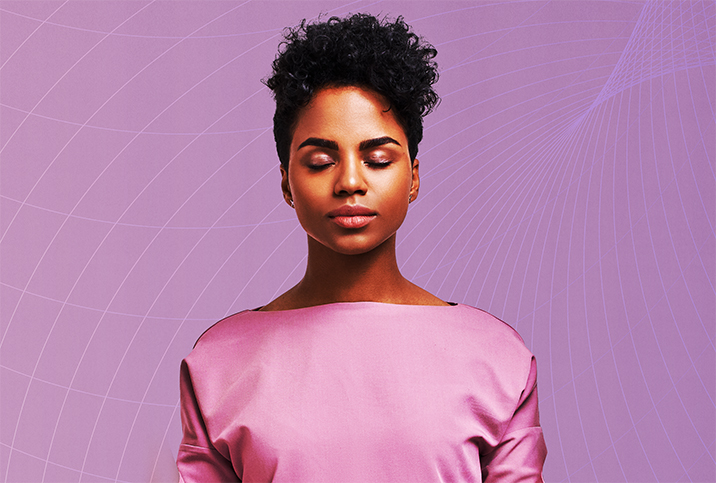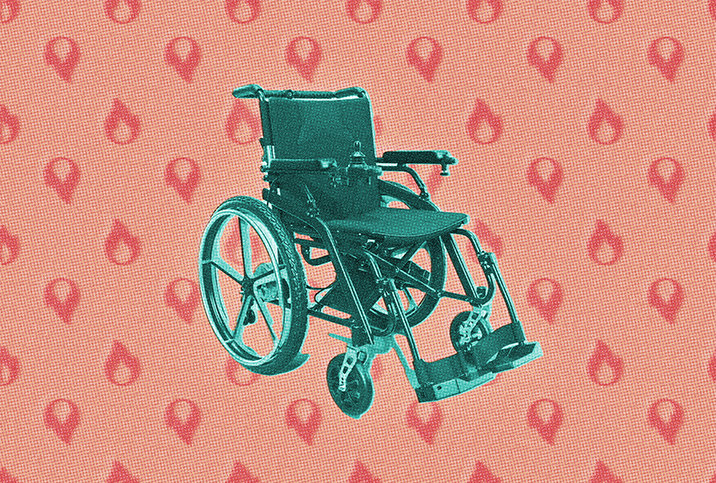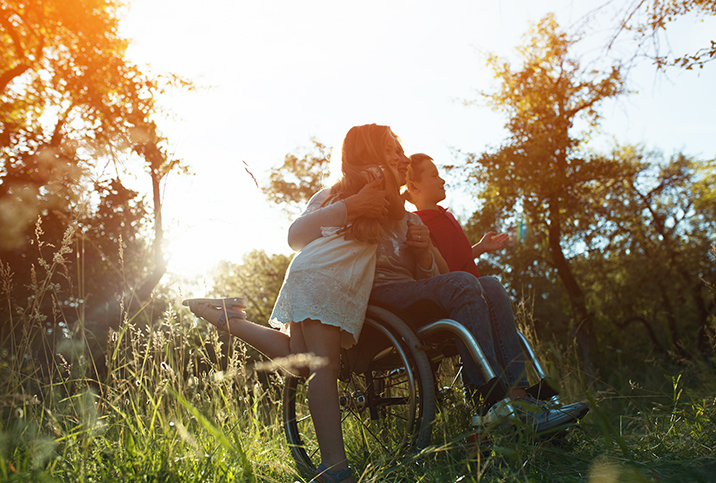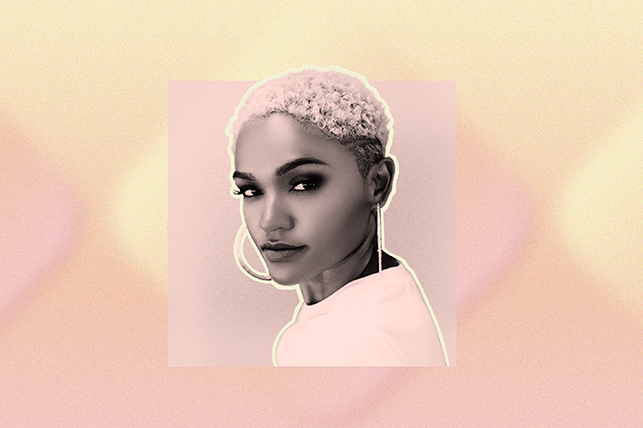Dating, Disability and the Dilemma of Disclosure
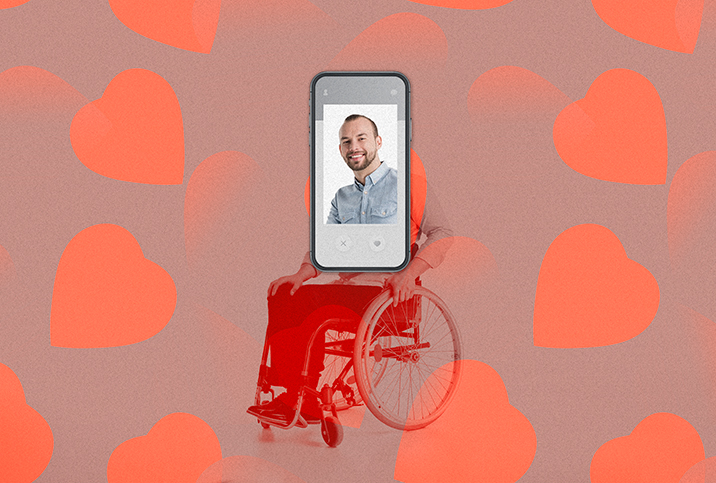
If dating apps were to collectively claim they'd defined the course of matchmaking in the twenty-first century, it would be pretty hard to dispute. In just a few short decades, online dating has gone from being synonymous with "stranger danger" to being the go-to meeting method for young adults, nearly fifty percent of whom have ever used a dating app or website, according to Pew Research Center.
Young people aren't the only demographic driving the popularity of web-enabled encounters. According to that same study, LGBTQIA+ people are overrepresented on dating apps, which makes sense: Dating is a numbers game, and when your dating pool is smaller, you're more likely to embrace tools that streamline the search. That sentiment is also common among disabled dating app users, but for this group, there is also the daunting task of disclosure to contend with.
When I became disabled last year after a workplace accident with a forklift, I was surprised at how anxious I was about how to approach my Tinder profile. If I didn't explicitly mention my mobility issues or include a photo that showed me with my cane, would people feel lied to when they found out? If I did one or both of those things, would it make me a target for ableism and fetishists, like the horror stories I'd heard on Twitter? I was scared to make the wrong choice and potentially miss out on a match.
Ableism in action
For all of these concerns, at least the disclosure of a physical disability is fairly straightforward. Abled folks intuitively understand that it would be silly to invite me on a hike, or to the gym. But they're far less adept at navigating chronic illnesses or other invisible disabilities. For the people who actually have them, dealing with that dearth of knowledge while meeting new matches is often more trouble than it's worth.
Megan Ribar, 33, of Kingston, NY, had been experiencing chronic joint pain and other mysterious symptoms for several years before finally being diagnosed with lupus, an auto-immune disease, earlier this year. Before the diagnosis, and especially pre-pandemic, Ribar had used dating apps off and on. But having this new knowledge about her health has given her pause. "I'm so scared of not being believed about the complexity that is my life with this illness that I haven't even bothered trying yet," she admitted.
On more general dating apps, just like in the real world, there is an underlying assumption that everyone is abled unless they demonstrate otherwise.
Ribar's concern is understandable. Living in a culture that marginalizes disabled people means that many abled people balk at the prospect of dating one, based solely on preconceived notions. Scope, a disability equality charity in the U.K., reported in 2014 that a whopping 67 percent of Britons admitted to being uncomfortable even talking to a disabled person. A smaller-scale experiment conducted by one London woman yielded similarly damning results. For Vice, writer Meg Fozzard, a wheelchair user, made two Tinder accounts: one in which her mobility aid was visible, and another using pictures taken just before she started using her wheelchair.
After some time swiping, she discovered that she received almost fifty percent fewer matches on the profile that featured her wheelchair. She was faced with the heartbreaking reality that disability was dimming her dating prospects. This is the fear at the heart of the disclosure process on dating apps. Are there any other options?
Disclosure vs. visibility
There are lots of apps targeted toward disabled folks. There's Gutsy, for daters with digestive health problems like irritable bowel syndrome and Crohn's disease, or Lemonayde, for those with chronic illness in general. These apps remove the need to go into detail about your body while you're still in the earliest stages of a courtship. As the developers of the latter app put it, "I'm not sure which is worse, the sporadic flare-ups, or the abstruse explanations I need to come up with to cancel a first date three times in a row."
While there are drawbacks to using apps like Gutsy or Lemonayde, particularly the limited and geo-dispersed dating pool, they inherently understand and alleviate the challenges of the disclosure process. They are an oasis in a desert of dating apps that all but ignore disability. On more general dating apps, just like in the real world, there is an underlying assumption that everyone is abled unless they demonstrate otherwise. It's this culture that creates the need for "disclosure" to begin with.
I ultimately opted to disclose my disability on Lex and OkCupid, the best apps, in my opinion, for the easy access they provide to leftist queers. While I don't get into all the details, I do describe myself as a "chronic pain warrior" next to a wheelchair symbol emoji. I also suggest cute and sedentary dates, like sharing a blunt by the lake and finding shapes in the clouds. I try to make it clear that my life is pretty normal, and I can do most of what I want to do—as long as there's a seat nearby.
Oftentimes, the internet is more accessible than the real world, and I find I'm better able to build community with other disabled folks there, whether it's via dating apps or social media. Those connections are a big part of why I favor disclosure. While it's not the best route for all disabled people, having that option is truly powerful.
In an age when most couples are meeting online, as a 2019 Stanford study discovered, it can feel really meaningful to insist on being visible in that realm in a way we can't always do in a society that sidelines disabled people. If it can contribute to a culture that can better acknowledge the existence of disability, then we'll all be better off for it.












